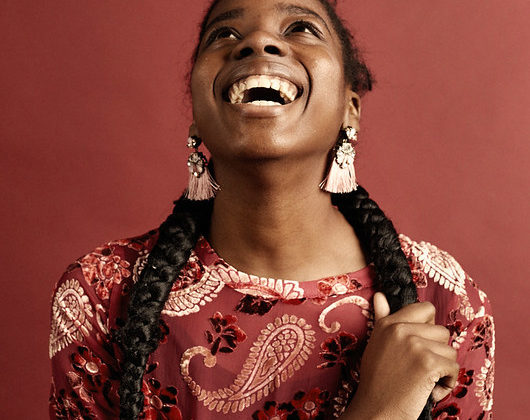I was sitting in LA traffic when anxiety began twisting its slithering scales around my mind, squeezing tightly until tears fell. I ended up on the doorstep of a woman I greatly admired, but hardly knew. Bare feet and her hair in bun, her son on her hip and ravioli on the stove, she shared her soul with abandon. I shared mine.
After my description of seemingly rootless anxiety, she simply plopped a book next to me, “Boundaries: When to Say Yes, How to Say No to Take Control of Your Life.”
“No” is not a safe word for me to say. In fact, no is a word that means guilt, condemnation and rejection, possibly from others, most certainly from myself. Isn’t saying “no” the selfish thing to do?
Women are often raised to fulfill the role of helper. Though not all of us are discouraged from ambition, many are fed the idea that our ambitions are subservient to the goals of those around us. Acts of service are demonstrations of love that lead us into safe arms. So saying “yes” to others becomes our mantra, our swan song.
I was raised to believe this stance is one we should all take, regardless of gender or station. This is a utopic way to live. I still believe in this utopia.
Dysfunction arises when we believe it all rests on our shoulders. My anxiety was based on a fallacy: that the world’s pain was something that I could resolve.
Being a Yes Woman was not truly loving my friends or strengthening my relationships. To be “supportive,” I picked sides in disagreements I knew little about and prevented others from stepping up to their own responsibilities. I stunted their growth by trying to make myself feel like the savior I felt I had to be.
Not having boundaries is a sure way to earn approval; that’s the temptation of it. If we are not careful, we can come to view service as pure self-denial, but our needs and those of others are not in constant conflict.
No is a necessary word. Quiet days alone, three square meals, adequate sleep, a dinner with a friend, these are all things that enable us to love others well. Ignoring ourselves handicaps us from fully investing in those around us.
“It is not selfish to make sure that you are okay before attending to others’ needs; it is simply common sense.” – The Enneagram Institute
The truth is, you don’t have to prove yourself as the hero in every narrative. Freedom is choosing to serve others not out of obligation or fear, but genuine love.
Next time before saying “yes,” ask yourself these questions:
1. Am I shelving my responsibilities and health in order to take on that of another person?
2. Is the appearance of service more important to me than the heart of it?
3. Will my short-term assistance actually serve this person in the long run?
Do you have a tendency to overcommit?
Featured Image by Lenne Chai for Darling Issue No. 23











2 comments
I am a chronic yes-girl. I have always wanted to please people. I just want to make people happy. I take and I take until I’m anxious to the point of no return. It’s one of many things that I’ve been working on in the last few years. I finally am making a lil bit of lee-way, but it’s taking a lot of work. I don’t necessarily think it has to do with being female (but I guess I definitely fall in that category), I think it has to do with the type of person you are. People with anxiety don’t like conflict and so they’re more likely to choose the option that would cause the least amount of conflict. Thus saying yes more often. You really got me to thinking, great post! xxx
Melina | melinaelisa.com
This is one of the best articles I’ve read this week. Thank you.
My favorite line:
“Being a Yes Woman was not truly loving my friends or strengthening my relationships. To be “supportive,” I picked sides in disagreements I knew little about and prevented others from stepping up to their own responsibilities. I stunted their growth by trying to make myself feel like the savior I felt I had to be.”